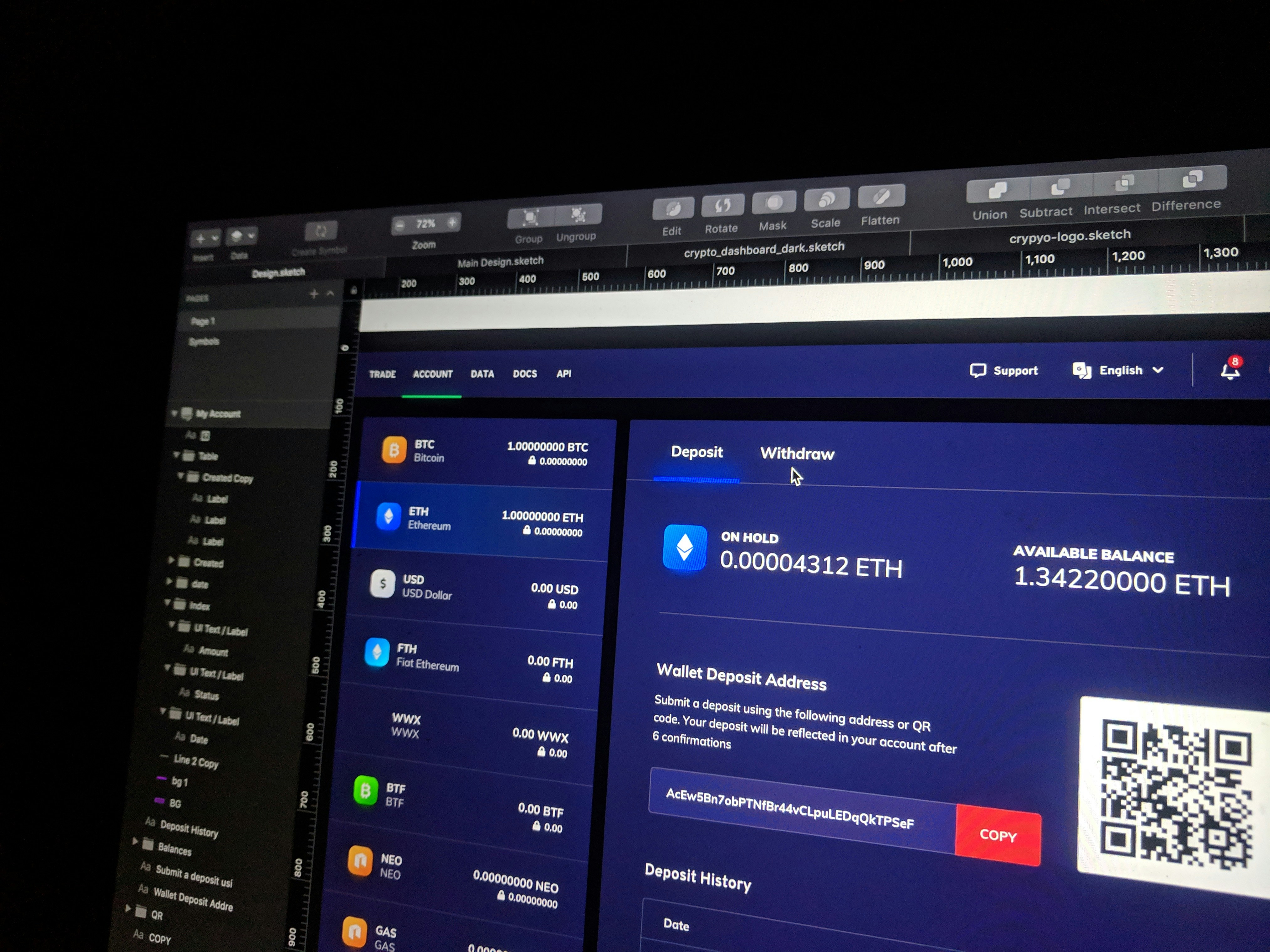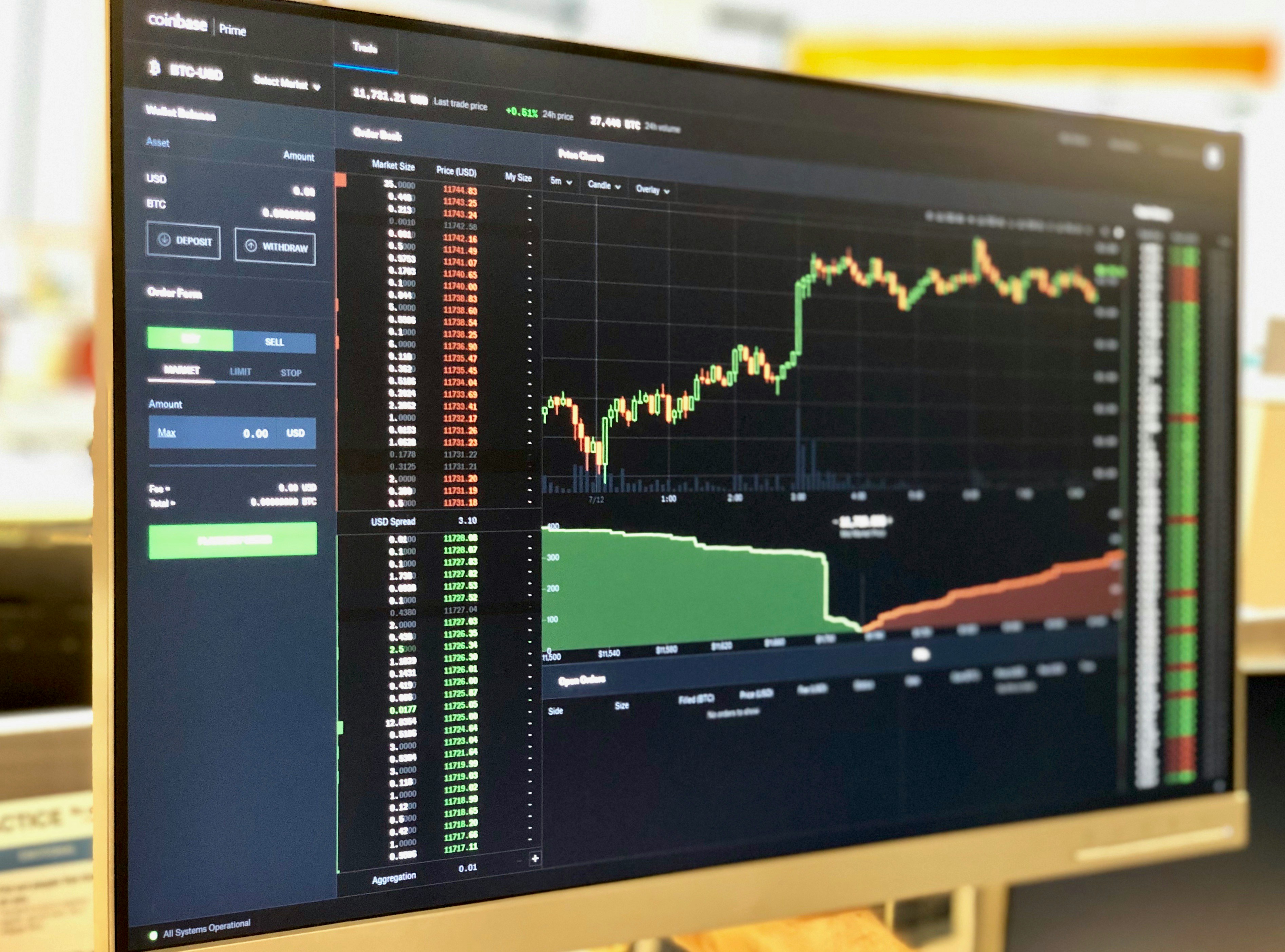
Introduction to Cryptocurrency Wallets
The Best Crypto Wallets for Beginners in 2025: A Comprehensive Guide
Cryptocurrency wallets are pivotal tools designed for managing, storing, and transacting cryptocurrencies. They serve as the interface between users and the blockchain, enabling individuals to send, receive, and monitor their digital currencies. Understanding how these wallets function is crucial, especially for those who are new to the world of cryptocurrency.
At its core, a crypto wallet does not physically store cryptocurrencies; rather, it holds the private and public keys necessary to facilitate transactions on the blockchain. The public key is akin to an email address that allows others to send you funds, while the private key is comparable to a password that grants access to your funds. Safeguarding this private key is of utmost importance since anyone in possession of it can manipulate the associated cryptocurrencies without your consent.
There are several types of cryptocurrency wallets available, each with unique features and benefits. These include hardware wallets, which store keys offline for enhanced security; software wallets, which are user-friendly applications available on mobile devices or computers; and web wallets, which are internet-based platforms providing quick access to cryptocurrencies. For beginners, software wallets are often recommended due to their balance of convenience and security. However, it’s crucial to assess which crypto wallet is best for beginners in 2025 based on factors such as ease of use, fees, and security measures.
Choosing the right wallet is essential for ensuring the safe storage and accessibility of your digital assets. A wallet that is intuitive and offers robust security features will significantly enhance the user experience, particularly for those just starting. In this evolving landscape of cryptocurrencies, understanding the various wallet types and their functionalities will empower beginners to manage their digital currencies effectively.
Types of Crypto Wallets Explained
When exploring the question of which crypto wallet is best for beginners in 2025, it is essential to understand the various types of wallets available. Broadly, crypto wallets can be categorized into three main types: hardware wallets, software wallets, and online wallets. Each type has distinct features, advantages, and disadvantages that cater to different user needs and preferences.
Hardware wallets are physical devices that securely store a user’s private keys offline. These wallets are recognized for their high security and are often recommended for individuals dealing with significant amounts of cryptocurrency. The primary advantage of hardware wallets is that they are immune to online hacks and malware, making them ideal for long-term storage. However, the downside is that they can be costly, and users must ensure that they do not lose their devices since recovery may be complicated.
On the other hand, software wallets can be subdivided into desktop, mobile, and browser-based options. Desktop wallets are installed on a personal computer, giving users full control over their private keys. Mobile wallets provide accessibility for transactions on the go, while online wallets, commonly referred to as web wallets, allow users to store their cryptocurrencies on a cloud-based server. While software wallets are generally user-friendly and free to use, they come with increased vulnerability to hacking and phishing attacks. Therefore, users should carefully consider their security needs when selecting this type.
Lastly, online wallets, although convenient, store private keys on a centralized server and are typically managed by third-party services. This makes them the least secure option among the three types. While online wallets are easy to set up and use, it is vital for beginners to understand the risks associated with entrusting their security to external entities. When determining which crypto wallet is best for beginners in 2025, it is crucial to balance convenience with security based on individual preferences and needs.
Key Features to Look for in a Beginner-Friendly Wallet
When entering the world of cryptocurrency, selecting the right wallet is crucial, particularly for newcomers. For those asking, “which crypto wallet is best for beginners in 2025?” understanding essential features can significantly ease the selection process and enhance the user experience. One of the first aspects to consider is the user interface. A beginner-friendly wallet should have an intuitive design that simplifies navigation and transaction management. This allows users to conduct transactions without complications, making the experience more seamless and enjoyable.
Another significant aspect is the security measures employed by the wallet. Given the prevalence of cyber threats, strong security protocols are non-negotiable. Look for wallets that offer features such as two-factor authentication (2FA), biometric logins, and private key management. A well-secured wallet not only protects assets but also instills confidence in its users, helping them to engage with the platform more comfortably.
Support for multiple cryptocurrencies is also a feature that beginners should prioritize. A versatile wallet enables users to store various digital assets, allowing them to diversify their portfolios without needing multiple applications. This not only simplifies asset management but also introduces users to a wider range of cryptocurrencies.
Backup and recovery options are another critical feature to consider. In the event of loss or theft, having reliable backup methods—such as recovery seed phrases—ensures that users can restore their wallets. Customer support availability is equally important; responsive support can guide beginners through the often-complex processes involved in purchasing, storing, and transacting cryptocurrencies.
In conclusion, when determining which crypto wallet is best for beginners in 2025, prioritize interfaces that are user-friendly, offer robust security, support diverse cryptocurrencies, provide reliable backup solutions, and ensure responsive customer support. These features will greatly assist newcomers in navigating their cryptocurrency journey.
Top Recommended Crypto Wallets for Beginners in 2025
As cryptocurrency continues to gain popularity, selecting the right wallet becomes paramount for beginners. In 2025, several wallets stand out as ideal choices for newcomers, balancing ease of use, security, and essential features.
One prominent option is the Exodus Wallet. This software wallet is user-friendly, boasting an intuitive interface that is perfect for those just entering the crypto space. Exodus supports numerous cryptocurrencies, enabling investors to manage diverse portfolios seamlessly. Its built-in exchange feature allows users to swap assets without leaving the wallet, enhancing the transactional experience. Security measures, including private key control and backup options, provide peace of mind for new investors.
Another highly recommended wallet is Coinbase Wallet. While Coinbase is primarily known as a cryptocurrency exchange, its wallet service offers significant advantages for beginners. Coinbase Wallet allows users to hold their digital assets off the exchange platform, which increases security against exchanges’ risk of hacks. Additionally, the user-friendly design and educational resources provided by Coinbase make it a suitable choice for novice users looking to understand cryptocurrency better.
For those who prefer hardware wallets, Trezor One remains a leading choice. Although slightly more advanced, Trezor One offers robust security features, ensuring that private keys are stored offline. The wallet’s compatibility with multiple cryptocurrencies and its seed recovery feature further attract beginners who prioritize security in their investments.
Lastly, MetaMask is a great option for beginners interested in Ethereum and decentralized applications (dApps). This browser extension wallet simplifies the process of interacting with the Ethereum blockchain, making it a popular choice among newcomers exploring Ethereum-based projects.
These crypto wallets not only provide essential features but also ensure that new investors can confidently manage their digital assets as they embark on their cryptocurrency journey. Familiarizing oneself with these options can significantly impact a beginner’s experience in this dynamic market.
Security Considerations While Using Crypto Wallets
When embarking on the journey of cryptocurrency investment, security considerations are paramount for beginners seeking to determine which crypto wallet is best for beginners in 2025. The rapid evolution of the cryptocurrency landscape calls for a keen understanding of how to safeguard digital assets effectively. One of the essential practices is choosing a reputable wallet provider known for its security features. Opting for wallets that utilize robust encryption methods and two-factor authentication can significantly reduce the risk of unauthorized access.
Beginners must also be aware of common scams that proliferate within the crypto ecosystem. Phishing attacks, where malicious actors attempt to obtain sensitive information by masquerading as trusted entities, are prevalent. Always ensure that the wallet’s official website is accessed directly and not through third-party links. Furthermore, educating oneself about the various types of scams, such as wallet drainers and fake initial coin offerings (ICOs), can empower new users to steer clear of potential pitfalls.
Another critical aspect of security is the safe management of recovery phrases and private keys. Recovery phrases, also known as seed phrases, provide access to your wallet; thus, they should never be shared or stored digitally without encryption. Instead, writing these phrases down and storing them in a secure location is advisable. Similarly, private keys serve as the keys to your crypto assets, making it vital to treat them with the utmost care. Using hardware wallets to safeguard private keys can offer an additional layer of security, protecting users from online threats.
By adhering to these security best practices and remaining vigilant, beginners can confidently navigate which crypto wallet is best for beginners in 2025 while minimizing the risks associated with cryptocurrency investments.
Setting Up Your First Crypto Wallet: Step-by-Step Guide
Setting up your first crypto wallet is an essential step for any aspiring investor in digital currencies. To embark on this journey, the initial task involves determining which crypto wallet is best for beginners in 2025 based on personal requirements such as security, ease of use, and accessibility. Once a wallet is selected, the process begins.
First, visit the official website of the chosen wallet provider and download the wallet software or app. Ensure that it is from a legitimate source to avoid security issues. Once the installation is complete, launch the application to create your account. You will typically be prompted to set a strong password—make sure to choose one that balances complexity with memorability to safeguard your assets.
After establishing your account, the next step is to secure your wallet. Most wallets offer a backup feature, generating a recovery phrase or seed key. It is imperative to write down this phrase and store it in a safe location, as it is crucial for recovering your account in case you forget your password or lose access to your device. Additionally, consider enabling two-factor authentication for an extra layer of security.
Once your wallet is secured, you can make your first transaction. Depending on the wallet, you may need to obtain a cryptocurrency, which can be purchased from exchanges. Transfer funds from an exchange or another wallet by inputting the recipient address associated with your crypto wallet. Always verify the address before completing the transaction to avoid potential losses, as transactions in the crypto world are irreversible.
Now that you have successfully set up your wallet and completed your first transaction, you are well on your way to understanding how to navigate the cryptocurrency landscape. Identifying which crypto wallet is best for beginners in 2025 will depend largely on personal experiences and preferences moving forward.
Common Mistakes to Avoid When Using Crypto Wallets
As cryptocurrency continues to gain traction, it is essential for beginners to familiarize themselves with the common mistakes associated with crypto wallets. Many new users underestimate the importance of security features, often treating their wallets as less critical than they actually are. Neglecting to enable two-factor authentication (2FA) or using weak passwords makes wallets vulnerable to hacks. To avoid these security pitfalls, it is advisable to choose wallets that offer robust security protocols and to follow best practices for maintaining password hygiene.
Another frequent mistake is the failure to back up wallets diligently. Beginners may not realize that losing access to their digital assets can occur when wallets are not properly backed up. Consequently, it is crucial to create backups of wallet recovery phrases and private keys in secure locations. Users are encouraged to utilize hardware wallets or encrypted, offline backups to mitigate the risk of loss and ensure their assets are safe from potential threats.
Additionally, misunderstanding transaction fees is a substantial error that can lead to unnecessary costs. Beginners often overlook the varying transaction fees associated with transferring cryptocurrencies, which can fluctuate based on network demand. By carefully researching and comparing transaction fees for different wallets, users can make informed decisions and save on costs. Understanding the fee structure is a vital aspect of using crypto wallets effectively and can noticeably impact a user’s experience.
In conclusion, to maximize their experience and security while managing digital assets, beginners should focus on these critical areas. Avoiding common mistakes like neglecting security features, failing to back up wallets, and misunderstanding transaction fees will help users navigate the complexities of the crypto landscape more effectively. By making informed choices regarding which crypto wallet is best for beginners in 2025, individuals can enhance their digital asset management and safeguard their investments.
The Future of Crypto Wallet Technology
As the cryptocurrency landscape continues to evolve, so too will the technology behind crypto wallets. By 2025, it is anticipated that crypto wallets will undergo significant advancements, particularly in the areas of security, functionality, and user experience. One of the most pressing concerns for cryptocurrency holders is safety; therefore, enhanced security protocols are likely to emerge. Innovations such as multi-signature wallets, biometric authentication, and secure hardware solutions will become increasingly common, providing users with peace of mind regarding the safety of their digital assets.
Additionally, the integration of decentralized finance (DeFi) platforms with crypto wallets is expected to deepen. More wallets will include features that allow users to seamlessly interact with DeFi applications, enabling them to lend, borrow, and earn interest on their cryptocurrency holdings directly from their wallet interface. This shift not only simplifies the user journey but also promotes the accessibility of DeFi to new entrants in the space. As we approach 2025, the question of which crypto wallet is best for beginners will likely hinge on these integrations and how well they align with user requirements.
Furthermore, the evolving needs of cryptocurrency users cannot be overlooked. As the demographics of crypto enthusiasts expand, wallets will need to cater to a broader audience that may include less tech-savvy individuals. User-friendly interfaces and educational resources embedded within wallets can significantly enhance the onboarding process for newcomers. By focusing on simplicity and usability, crypto wallets can help bridge the gap between novice users and the complexities of digital currencies.
Conclusion and Next Steps for Beginner Investors
Choosing the right crypto wallet is an essential step for anyone looking to venture into the cryptocurrency realm, particularly for beginners in 2025. As the market continues to evolve, the variety of wallet options available can be overwhelming. Understanding the functionality, security features, and user-friendliness of different wallets is crucial to safeguarding investments. Selecting the best crypto wallet for beginners not only enhances the overall investment experience but also promotes confidence in managing digital assets.
For newcomers, it is advisable to start with thorough research into the available wallets. This entails evaluating not only the security measures in place but also the ease of navigation and compatibility with different cryptocurrencies. As some wallets cater specifically to particular tokens or blockchain networks, picking one that aligns with your investment strategy could streamline your experience. Additionally, factors such as customer support and community feedback can significantly influence your choice.
Once you have identified a suitable wallet, consider beginning your investment journey with small amounts. This approach allows you to familiarize yourself with the process of buying, storing, and managing cryptocurrency without the risk of substantial financial loss. Gradually increasing your investment as your knowledge grows can bolster your confidence and encourage prudent decision-making.
Lastly, staying informed about developments within the cryptocurrency landscape is vital. Following market trends, regulatory changes, and technological advancements will empower you to adapt your strategies effectively. Engaging with educational resources, communities, and discussions can further enhance your understanding.
In conclusion, by choosing the right wallet, starting with small investments, and staying updated on the crypto space, beginner investors can set themselves on a path to success in the dynamic world of cryptocurrency in 2025.



















